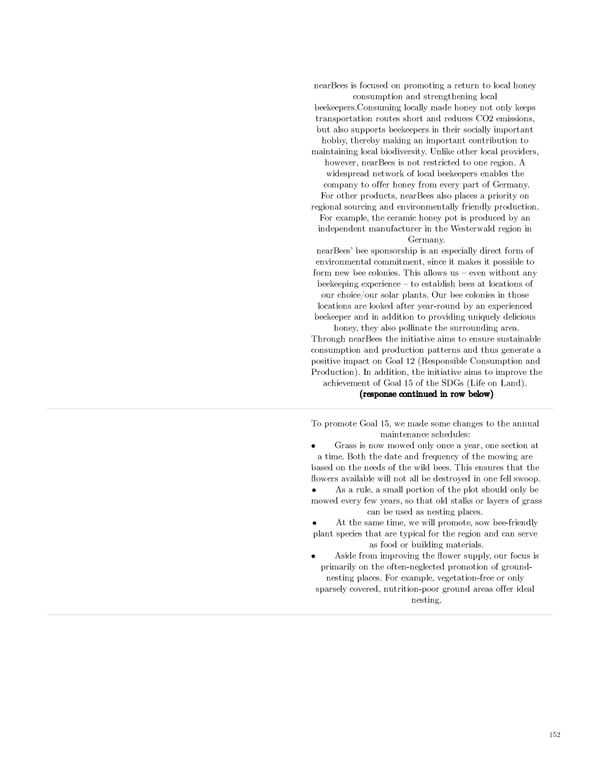nearBees is focused on promoting a return to local honey consumption and strengthening local beekeepers.Consuming locally made honey not only keeps transportation routes short and reduces CO2 emissions, but also supports beekeepers in their socially important hobby, thereby making an important contribution to maintaining local biodiversity. Unlike other local providers, however, nearBees is not restricted to one region. A widespread network of local beekeepers enables the company to offer honey from every part of Germany. For other products, nearBees also places a priority on regional sourcing and environmentally friendly production. For example, the ceramic honey pot is produced by an independent manufacturer in the Westerwald region in Germany. nearBees’ bee sponsorship is an especially direct form of environmental commitment, since it makes it possible to form new bee colonies. This allows us – even without any beekeeping experience – to establish bees at locations of our choice/our solar plants. Our bee colonies in those locations are looked after year-round by an experienced beekeeper and in addition to providing uniquely delicious honey, they also pollinate the surrounding area. Through nearBees the initiative aims to ensure sustainable consumption and production patterns and thus generate a positive impact on Goal 12 (Responsible Consumption and Production). In addition, the initiative aims to improve the achievement of Goal 15 of the SDGs (Life on Land). (response continued in row below) To promote Goal 15, we made some changes to the annual maintenance schedules: • Grass is now mowed only once a year, one section at a time. Both the date and frequency of the mowing are based on the needs of the wild bees. This ensures that the flowers available will not all be destroyed in one fell swoop. • As a rule, a small portion of the plot should only be mowed every few years, so that old stalks or layers of grass can be used as nesting places. • At the same time, we will promote, sow bee-friendly plant species that are typical for the region and can serve as food or building materials. • Aside from improving the flower supply, our focus is primarily on the often-neglected promotion of ground- nesting places. For example, vegetation-free or only sparsely covered, nutrition-poor ground areas offer ideal nesting. 152
 AGI Public RI Report Page 151 Page 153
AGI Public RI Report Page 151 Page 153